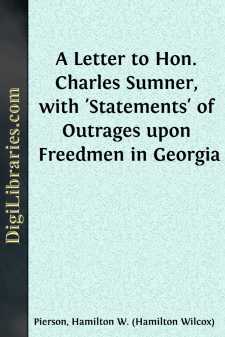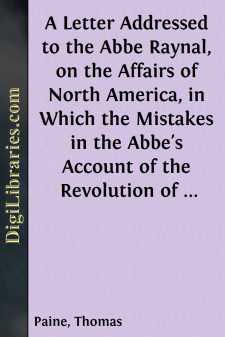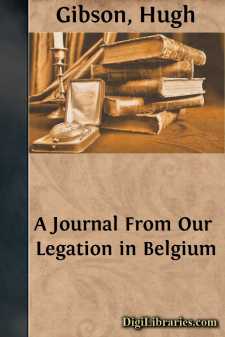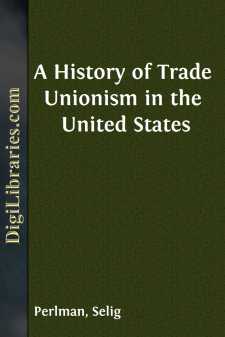History
- Africa 30
- Americas (North Central South West Indies) 50
- Ancient 68
- Asia 58
- Australia & New Zealand 8
- Canada 41
- Caribbean & West Indies 1
- Civilization 20
- Eastern Europe 12
- Europe 310
- Expeditions & Discoveries 60
- General 77
- Historical Geography 1
- Jewish 9
- Latin America 3
- Medieval 8
- Middle East 13
- Military 248
- Revolutionary 8
- Study & Teaching 5
- United States 353
- Western Europe 56
- World 13
History Books
Sort by:
PREFACE. In commencing the attempt to portray a very remarkable career I had hoped for the coöperation of the person concerned so far, at least, as the supervision of any statements I might find it necessary to make. But it was decided by her friends that it would not be well for her at present to be troubled with new projects, or even informed of them. It was at first a serious disappointment to me...
more...
by:
Elbert Hubbard
his literary trifle, “A Message to Garcia,” was written one evening after supper, in a single hour. It was on the Twenty-second of February, Eighteen Hundred Ninety-nine, Washington's Birthday, and we were just going to press with the March “Philistine.” The thing leaped hot from my heart, written after a trying day, when I had been endeavoring to train some rather delinquent villagers to...
more...
LAWLESSNESS IN GEORGIA. Washington, D. C., March 15, 1870. My Dear Sir: It would not become me to express an opinion upon any of the legal questions involved in the Georgia bill now before the Senate, but I respectfully call your attention to the following "statements" of facts. I certainly am not surprised that Honorable gentlemen whom I greatly esteem, should express their belief that the...
more...
by:
Thomas Paine
INTRODUCTION A London translation of an original work in French, by the Abbe Raynal, which treats of the Revolution of North America, having been reprinted in Philadelphia and other parts of the continent, and as the distance at which the Abbe is placed from the American theatre of war and politics, has occasioned him to mistake several facts, or misconceive the causes or principles by which they were...
more...
Fellow Students, I look back to-day to a time before the middle of the century, when I wasUNITY OF MODERN HISTORY reading at Edinburgh, and fervently wishing to come to this University. At three colleges I applied for admission, and, as things then were, I was refused by all. Here, from the first, I vainly fixed my hopes, and here, in a happier hour, after five-and-forty years, they are at last...
more...
ORIGIN OF THE PURPOSE OF THE TRIP N the Autumn and Winter of 1915, a body of distinguished and representative Frenchmen visited the United States, their object being to make an investigation of conditions here, having in mind the great need of France in war munitions, the steel in ingot and bar form very much needed for the manufacture of war materials, and the numerous other commodities necessary for...
more...
by:
Charles Morton
March 1, 1653. Whitelocke continues the negotiation. Now was the heat of Whitelocke’s business, and many cross endeavours used to render all his labours fruitless, and to bring his treaty to no effect. But it pleased God, in whom his confidence was placed, to carry him through all his difficulties, and to give his blessing and success to this negotiation. Whitelocke gave a visit to the Count de...
more...
District Clerk's Office. (L. S.)Be it remembered, that on the sixth day of March, A. D. 1816, and in the fortieth year of the Independence of the United States of America, Rowe & Hooper, of the said District have deposited in this Office, the title of a book, the right whereof they claim as Proprietors, in the words following, to wit: "A Journal of a Young Man of Massachusetts, late a...
more...
by:
Hugh Gibson
INTRODUCTION This volume is not a carefully prepared treatise on the war. It does not set out to prove anything. It is merely what its title indicates—a private journal jotted down hastily from day to day in odd moments, when more pressing duties would permit. Much material has been eliminated as of little interest. Other material of interest has been left out because it cannot be published at this...
more...
by:
Selig Perlman
CHAPTER 1 (1) Early Beginnings, to 1827 The customary chronology records the first American labor strike in 1741. In that year the New York bakers went out on strike. A closer analysis discloses, however, that this outbreak was a protest of master bakers against a municipal regulation of the price of bread, not a wage earners' strike against employers. The earliest genuine labor strike in America...
more...











